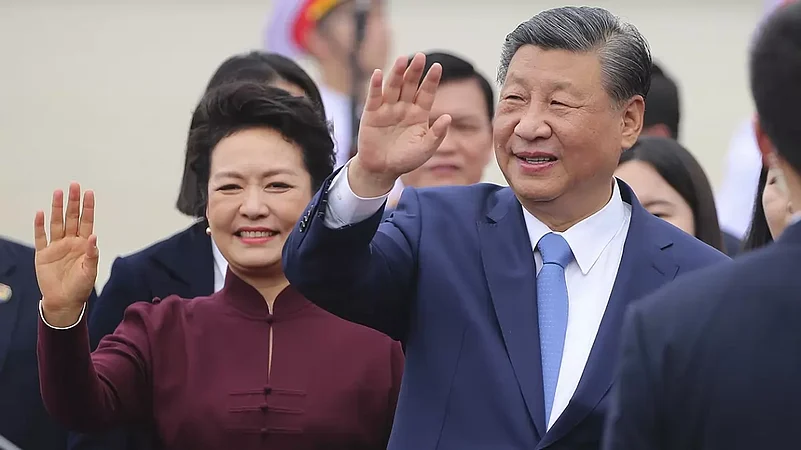China's President Xi Jinping embarked on a two-day visit to Vietnam on Tuesday, signalling an effort to strengthen ties between the Communist nations.
This diplomatic move comes just three months after the U.S. President Joe Biden's visit to Hanoi, as the major powers vie for influence in the Southeast Asian nation. In recent years, China-US relations have evolved into direct competition and open disagreements on numerous global issues or areas. Some have characterized the intensifying US-China competition as a New Cold War.
In his first visit to Vietnam in six years, Xi received a warm welcome at Hanoi airport from Prime Minister Pham Minh Chinh. The route to his hotel was adorned with people waving flags representing both countries, as depicted in images shared by state media.
"Asia's future is in the hands of no one but Asians," Xi wrote in an opinion piece published in the newspaper of the Vietnamese Communist party ahead of his visit.
Despite the close economic ties between China and Vietnam, the two neighbours have a history of disagreements, particularly regarding boundaries in the South China Sea.
During this visit, China aims to extend its support by offering advanced railway technology to assist Vietnam in upgrading its transport infrastructure. This includes a proposed rail link from southern China to the Vietnamese port of Haiphong, traversing a region rich in Vietnam's rare earth deposits.
China, as the world's largest exporter and refiner of these essential minerals, holds a strategic position in the production of electric vehicles and renewable energy.
However, certain contentious issues, such as the bitter territorial dispute over islands in the South China Sea and historical tensions dating back to the 1970s and 80s, are unlikely to be addressed publicly.
The two nations have a history of conflict, including a full-scale border war in 1979 that resulted in casualties on both sides. Additionally, topics like China's historic colonisation of Vietnam and Vietnam's concerns about the impact of Chinese dams on the Mekong river are expected to remain unspoken during the diplomatic discussions.


























